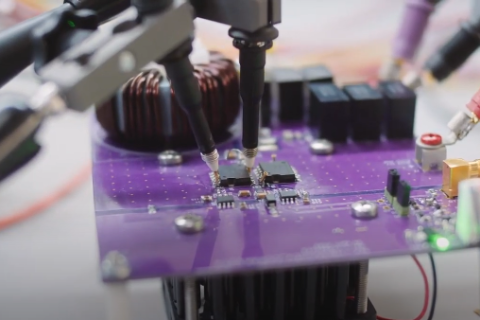A power struggle over the Dutch chipmaker Nexperia has erupted into a full-scale diplomatic standoff after the company's Chinese division told employees to ignore directives from its Dutch management, insisting the firm is "a Chinese company." The letter, reported by Dutch broadcaster NOS, comes days after the Netherlands seized control of the semiconductor maker, citing national security concerns.
The conflict stems from the October 12 intervention by the Dutch government, which temporarily assumed control of Nexperia-a crucial supplier of automotive and industrial chips-after accusing its Chinese parent company, Wingtech Technology, and its CEO, Zhang Xuezheng, of trying to remove European executives and divert company assets to a privately owned chip venture in China. The Court of Appeal in Amsterdam suspended Zhang, appointed independent director G.R.C. Dierick with decisive voting powers, and transferred ownership of Nexperia's shares to a trustee.
In apparent defiance, Nexperia's Chinese division issued an internal memo declaring that Nexperia "is fundamentally a Chinese company with Chinese roots." The letter instructed Chinese employees to disregard communications from Dutch management-including emails and meeting invitations-and follow orders only from Wingtech leadership. It also said that salaries and bonuses would now be paid by Nexperia China, not its Netherlands-based headquarters.
Dutch management confirmed awareness of the letter but declined further comment. The company later accused its ousted CEO of spreading "factually incorrect and misleading" information, according to a statement cited by Bloomberg. "Claims have been made that Nexperia has not been paying salaries to its employees," the company said. "These statements are factually incorrect and misleading."
The claims reportedly appeared on Nexperia China's official WeChat page, suggesting that the Chinese branch could function independently from the Dutch parent. The Netherlands' Ministry of Economic Affairs said such assertions were false and part of an effort by Zhang to "undermine lawful management authority."
Nexperia, headquartered in Nijmegen, manufactures low- and mid-range semiconductors used in cars, appliances, and industrial equipment. While the company's technology is not cutting-edge, its role in Europe's automotive supply chain makes it strategically vital. The firm generated $2.06 billion in annual revenue before the takeover.
Economy Minister Vincent Karremans, who now has final approval over Nexperia's management decisions, said the government's move was necessary to prevent a critical dependency on foreign powers. "Europe would have been 100% dependent for these sort of chips, in terms of knowledge, expertise and capacity, on foreign countries," Karremans said in an interview on the Dutch TV program Buitenhof.
The takeover has strained relations with Beijing. China's Ministry of Commerce called the seizure an abuse of national security pretexts, while the China Semiconductor Industry Association (CSIA) accused the Netherlands of "politicizing economic activity." In retaliation, Beijing imposed an export ban on Nexperia's Chinese branch, blocking shipments of products deemed to have dual civilian and military applications.
Karremans confirmed he will meet a Chinese counterpart in the coming weeks to de-escalate the dispute. Dutch diplomats are also in discussions with the European Commission, which may step in as mediator.





